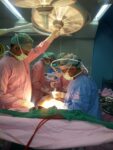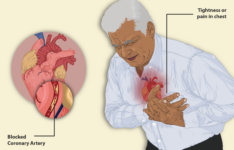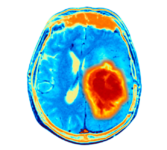Dietary sodium intake has long been identified as a major risk factor for premature death, especially due to its potential link to cardiovascular disease. As such, physicians often advise minimizing sodium intake to help promote health. A new study published in the European Heart Journal challenges some of the conventional wisdom on sodium … [Read more...]
Sodium Intake: What are the True Health Implications?
Heart Transplants May Work with Donors Who Suffered Circulatory Death
Though heart transplants have an extraordinary potential to save lives, the number of viable heart organs for transplants cannot keep up with the need. Over the past decade, more hearts have become available to bolster the volume of heart transplantation that are undergone. Sadly, much of the boom in availability has resulted from early deaths due … [Read more...]
Can Noise Give You a Heart Attack?
People are often bothered by loud noises, especially if those noises reach a certain decibel or are of a certain pitch. However, we tend to think of noise as simply annoying and do not generally consider it a danger. The results of a new study out of Rutgers Medical School that were presented at the American College of Cardiology’s 71th Annual … [Read more...]
Deep Learning for Identifying and Classifying Brain Tumors
Physicians and surgeons have long been challenged by the need to understand the volume and grading of meningiomas to develop a therapeutic plan and predict issues related to prognosis. These tumors are the most common form of primary intracranial tumor and are most commonly managed with radiotherapy or surgery. As technology has advanced and … [Read more...]
How We Can Help Healthcare Workers Overcome Shift Work Disorder Symptoms
One of the aspects of clinical medicine that many healthcare workers find challenging is shift work, particularly shift work that involves working overnight. Nearly one out of every five nurses who work night shifts develops shift work disorder (SWD) because of the chronic disruption they endure with regard to their sleep-wake cycle. Indeed, when … [Read more...]





